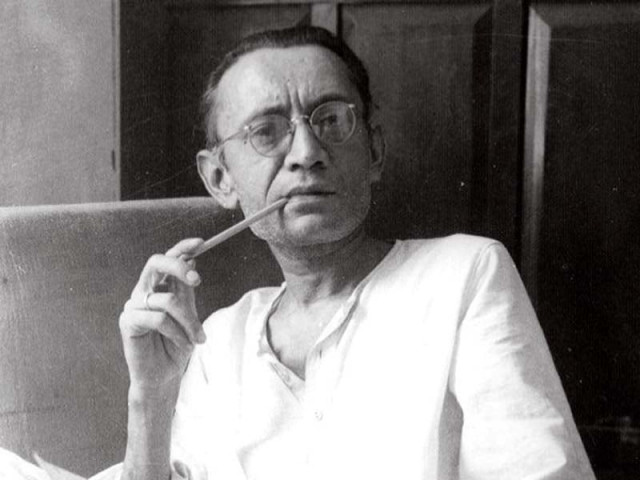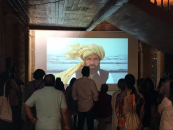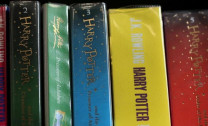Review: Amritsar of Manto’s youth
Parvez Anjum’s book deals with iconic writer’s life during defining years of subcontinent

Parvez Anjum’s book deals with iconic writer’s life during defining years of subcontinent
In Heidegger’s introductory statement, one finds a certain indifference to the life of a thinker or a writer, which may or may not have affected his work and his thought process. However, one feels inclined to wonder whether such indifference to a writer’s biography can be maintained when the writer in question is Saadat Hasan Manto.
Can Manto be understood and his work appreciated if isolated from the times he lived and events he witnessed? What would it take to write a biography of a writer who, like the great masters of fiction, lived a thoroughly challenging inner life as well as a treacherous outer life? How does one attempt to document the life of a writer who witnessed and wrote of what it means to be a human being and how dark this experience can be?
The study of biography is now considered to be an important aspect of literary studies, which emphasises as much on a writer and his or her life as well as on the narratological dynamics of a biographer. In other words, when documenting a late writer’s life, a biographer is engaged in an act of resurrection, where he or she tells a story of a storyteller and morphs a writer into a character of his or her reconstructive imagination. However, a biography cannot be a fictional narrative. It is suppose to be based on facts, especially when a writer in question did not write an autobiography, a study of which would demand a different set of analytical tools.
Parvez Anjum’s book Amritsar ka Manto: Hayaat, Waqayaat wa Takhleeqaat is dedicated to Guru Bari Aliyg and his followers, Hasan Abbas, Abu Saeed Qureshi, Manto and the rebel city of Amritsar. The book primarily deals with Manto’s childhood and adulthood most of which he spent in Amritsar amid the defining years of the twentieth century in the subcontinent.
Anjum starts his book by giving a genealogical account of the Manto family and their migration from the mountains of Kashmir into the various cities of India.
According to his account, Manto family’s ancestors were Brahmin pandits before embracing Islam and became Mantos after they became Muslims. However, he alludes to the silence of history when he mentions the absence of any source to prove when the Manto family embraced Islam. The narrative progresses with the first known ancestor of Manto family, Khawaja Rehmatullah, who came to Punjab and settled in Kashmiri Bazaar of Lahore in the early nineteenth century. However, Anjum has a scant evidence to prove the authenticity of this genealogical map as there are no exact dates or plausible time frames referred to.
Manto’s father, Ghulam Hasan, was born in 1855 and was a lawyer like most of Manto family members. He had three sons from his first wife, Jan Mali, and Manto was born of his second wife, Sardar Begum, who hailed from Kabul, from where her family migrated to Lahore.
The book then focuses primarily on Manto’s birth and his growing up days in Amritsar, where Anjum reconstructs Manto’s life as a prodigy who was afflicted with typhoid and remained irascible for the rest of his life and mentally active.
Anjum narrates the events of resistance against the Rowlatt Act of 1919, an agitation, which Manto experienced as a young child and which were etched in his mind for the rest of his life.
The biographer narrates Manto’s intellectual development throughout this period of school and college where he excelled as translator, which expresses Manto’s love of writers like Victor Hugo - whose The Days of the Condemned - Manto translated into Urdu, Maxim Gorky, Nikolai Gogol and Edgar Allan Poe whose works Manto not only translated into Urdu but identified with as a kindred soul.
The book does a good job as an anecdotal account of Manto’s life in Amritsar and is recommended for the students of literature as well as admirers of Manto.
However, the book lacks the defining qualities of a good biography. Instead of a biography the book opens without any preface or introduction and its initial pages read like a novel. Throughout the book, one finds serious editorial negligence where Hugo’s novel Les Miserables is spelled as ‘Less Miserable’ along with several other grammatical and linguistic errors, a display of bad editing that is hard to tolerate from a leading publisher like Sang-e-Meel.
In order for it to be an effective contribution to the study of Manto, there should be a serious preface or foreword along with a detailed introduction in the beginning of the book where a reader would get a chance to know the biographer and his approach to chronicle the life and times of a celebrated writer like Manto. The writer’s life as he lived it and as he felt it, is as important as his groundbreaking and soul-piercing work.
The writer is a former AIPS Junior Fellow at the University of North Carolina, Chapel Hill and teaches literary studies at Kinnaird College, Lahore. She is currently translating and annotating Mirza Athar Baig’s novel, ‘Ghulam Bagh’
Title: Amritsar ka Manto: Hayaat, Waqayaat wa Takhleeqaat
Author: Parvez Anjum
Publisher: Sang-e-Meel Publications
ISBN: 9693529073
Price: Rs900
Published in The Express Tribune, August 7th, 2016.
Like Life & Style on Facebook, follow @ETLifeandStyle on Twitter for the latest in fashion, gossip and entertainment.


















COMMENTS
Comments are moderated and generally will be posted if they are on-topic and not abusive.
For more information, please see our Comments FAQ